The Internet of Things (IoT) has revolutionized the way we live and work. It refers to the network of physical devices, vehicles, appliances, and other objects embedded with sensors, software, and connectivity, enabling them to collect and exchange data. This interconnectedness allows for seamless communication and automation, leading to increased efficiency, productivity, and convenience.
IoT integration catalyzes the transformative potential of the Fourth Industrial Revolution (IR 4.0), optimizing processes and enhancing efficiency across various sectors, including daily life, business, and home. From smart homes to industrial automation, IoT applications have become increasingly prevalent. In this article, we will explore some examples of how IoT is transforming different sectors and the benefits it brings.
IoT devices have become an integral part of our daily lives, making our lives more convenient and efficient. Here are some examples of how IoT is transforming our daily life:
IoT technology has revolutionized home automation. With IoT-enabled devices, you can control various aspects of your home, such as temperature, lighting, and security, from a single interface. For instance, you can set up routines to automatically turn on the lights and adjust the thermostat when you arrive home.
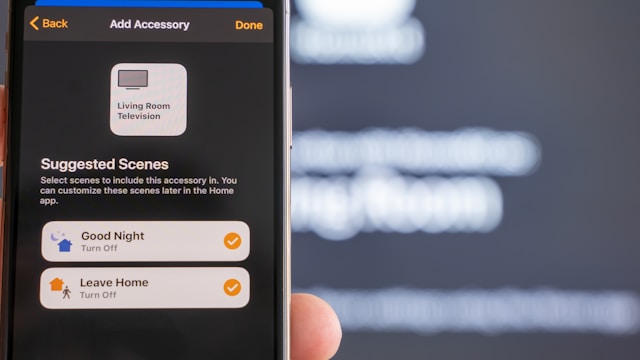
IoT-enabled security systems allow homeowners to monitor their homes remotely and receive real-time alerts in case of any suspicious activity. These systems include smart door locks, security cameras, and motion sensors.
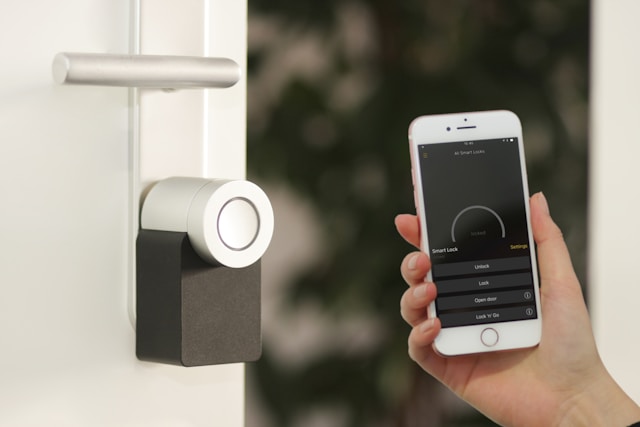
IoT has also made its way into the kitchen with wireless appliances. IoT devices in the kitchen, such as smart ovens can be controlled remotely, allowing you to preheat the oven or adjust the cooking time from your smartphone. Besides that, smart refrigerators can help users manage their groceries, track expiration dates, and even suggest recipes based on the available ingredients. Similarly, smart coffee makers can be programmed to brew your coffee at a specific time. These devices can also be controlled remotely, allowing users to preheat the oven or check the contents of the fridge while they are away.
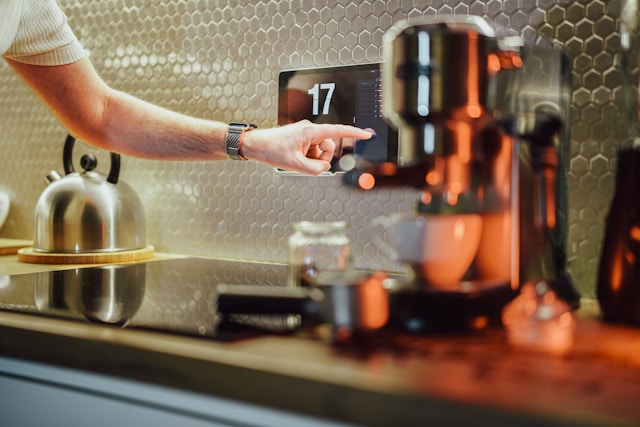
Another interesting IoT example in the home is smart mirrors. These mirrors are equipped with sensors and displays that can provide information such as weather updates, news headlines, and even your daily schedule. They can also be connected to other smart devices in your home, allowing you to control them through the mirror.
IoT thermostats enable homeowners to control the temperature of their homes remotely. They can adjust the heating or cooling settings using their smartphones or voice commands, saving energy and reducing utility bills.
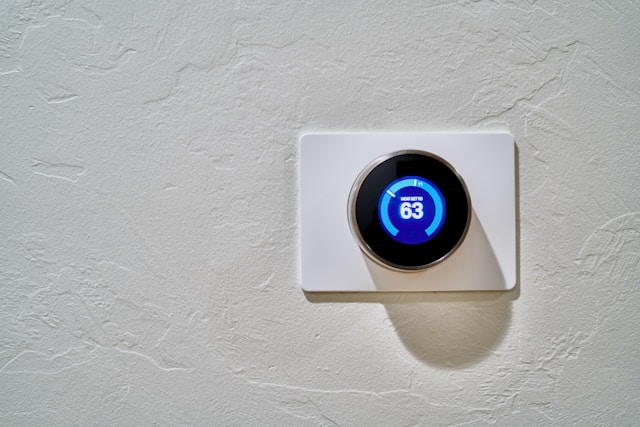
Cleaning your home has become easier with IoT-enabled robot vacuum cleaners. These devices can navigate your home, detect obstacles, and clean your floors automatically. You can also control them remotely using a smartphone app.
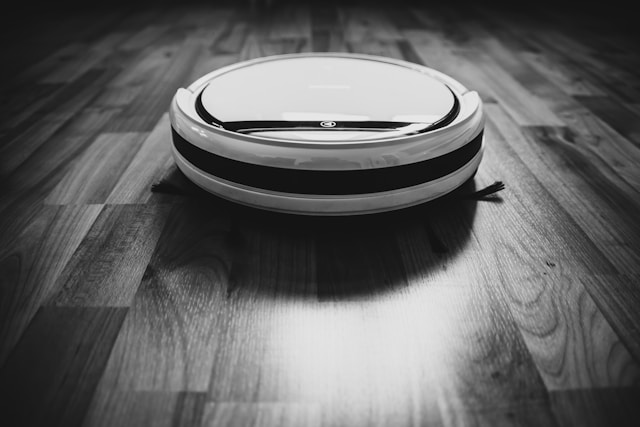
IoT technology is revolutionizing the automotive industry. Connected cars can collect and analyze data in real-time, providing drivers with valuable insights about their driving habits, vehicle performance, and maintenance needs. They can also receive alerts about traffic conditions, parking availability, and nearby gas stations.
Wearable IoT devices, such as fitness trackers and smartwatches, have gained popularity in recent years. These devices can monitor various health metrics, track physical activities, and provide personalized recommendations for a healthier lifestyle. They can also connect to other smart devices, such as smartphones and smart home systems, to enhance the overall user experience.
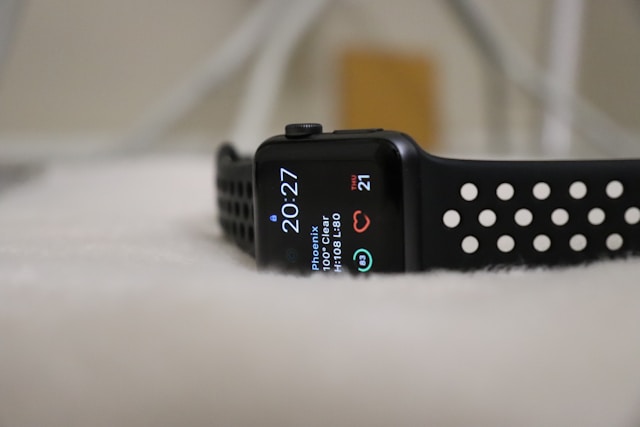
IoT technology can also help you keep track of your pets. Pet trackers, equipped with GPS technology, can be attached to your pet’s collar to monitor their location. You can receive real-time updates on your smartphone and even set up virtual boundaries to receive alerts if your pet goes outside a designated area.
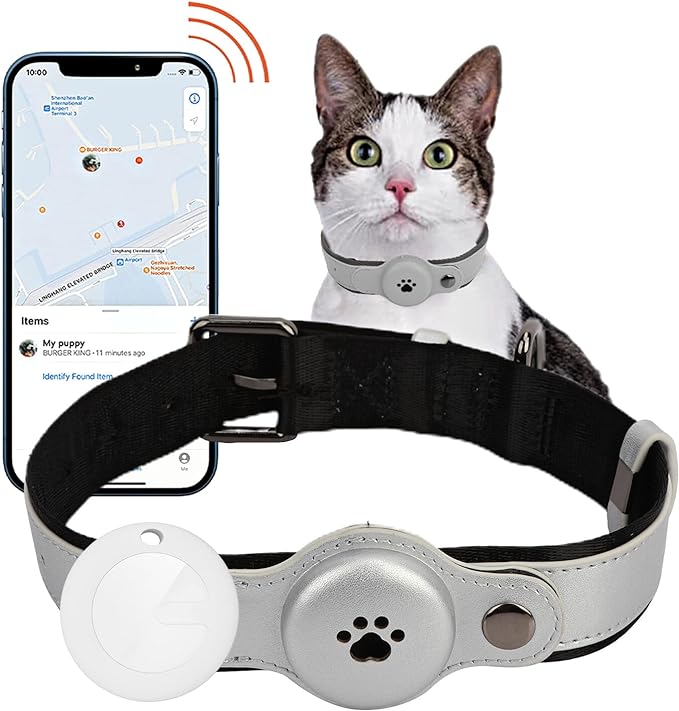
These are just a few examples of how IoT is making a significant impact on our daily lives. With the continuous advancement of technology, we can expect to see even more innovative IoT applications in the future.
One of the most common IoT examples in business is the use of IoT devices in logistics and fleet management. Companies can track their vehicles in real-time, monitor fuel consumption, and optimize routes to improve efficiency and reduce costs.
Another example is the use of IoT in supply chain management. IoT sensors can be used to track the location and condition of goods throughout the supply chain, ensuring timely delivery and reducing the risk of damage or loss.
IoT technology is also being used in the healthcare industry. For example, hospitals can use IoT devices to monitor patients remotely, collect real-time data on vital signs, and alert healthcare providers in case of emergencies.
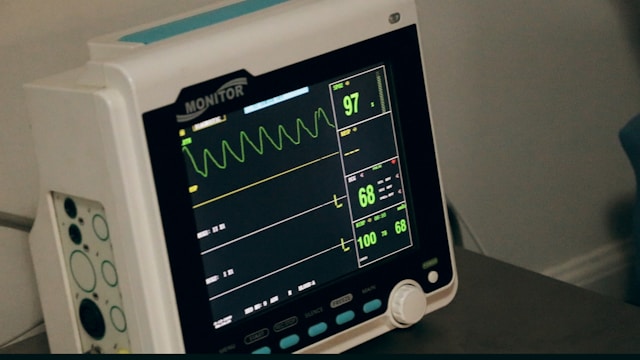
Manufacturing is another sector where IoT is making a significant impact. IoT devices can be used to monitor and control production processes, track inventory levels, and optimize maintenance schedules to minimize downtime.
Retail and e-commerce companies are also leveraging IoT technology to enhance customer experience. For instance, smart shelves equipped with IoT sensors can automatically track inventory levels and send notifications to store managers when products need to be restocked.
IoT is transforming cities into smart and sustainable environments. Smart city initiatives include smart street lighting, waste management systems, traffic monitoring, and public transportation optimization. These IoT-enabled solutions aim to improve the quality of life for residents, reduce energy consumption, and enhance urban planning and management
In conclusion, the Internet of Things (IoT) has revolutionized various sectors and has become an integral part of our daily lives. IoT devices such as smartwatches, fitness trackers, and home automation systems have made our lives easier and more connected. In business, IoT has enabled real-time monitoring, predictive maintenance, and improved supply chain management. In homes, IoT devices have provided enhanced security, energy efficiency, and convenience. IoT has enhanced efficiency, productivity, and convenience in both personal and professional settings.
However, there are also challenges and concerns associated with IoT. Security and privacy issues are major concerns as more devices become connected to the internet. The storage of vast amounts of data also raise questions about data privacy and ownership. Hence, it is crucial for individuals, businesses, and policymakers to address the challenges and work towards creating a secure and sustainable IoT ecosystem.
Finally, IoT is transforming various sectors and has the potential to reshape the way we live and work. It is an exciting and rapidly evolving field that holds great promise for the future.